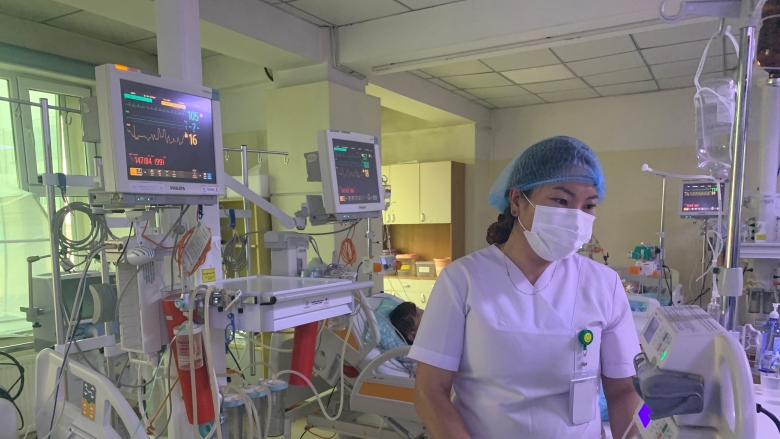When Iderzaya Davaajav, a 43-year-old man, first contracted COVID-19, he hardly knew what he would go through. Without any known pre-existing conditions, he was admitted to the hospital with 95% of his lungs damaged.
“It was getting very hard to breathe…,” said Iderzaya. “I was worried a lot. I was worried about my children and my family.”
Iderzaya was in hospital for 41 days while his lungs were infected with the coronavirus and couldn’t function.
“When I was getting treatment at the reanimation unit, I experienced firsthand the benefits of improved health services in the hospital. The doctors took tests and imaging regularly, using modern mobile equipment by my bedside, so I didn’t have to be moved to other places,” he said.
Iderzaya is now fully recovered. He is convinced that without the doctors and the equipment, his life would have been in danger.


